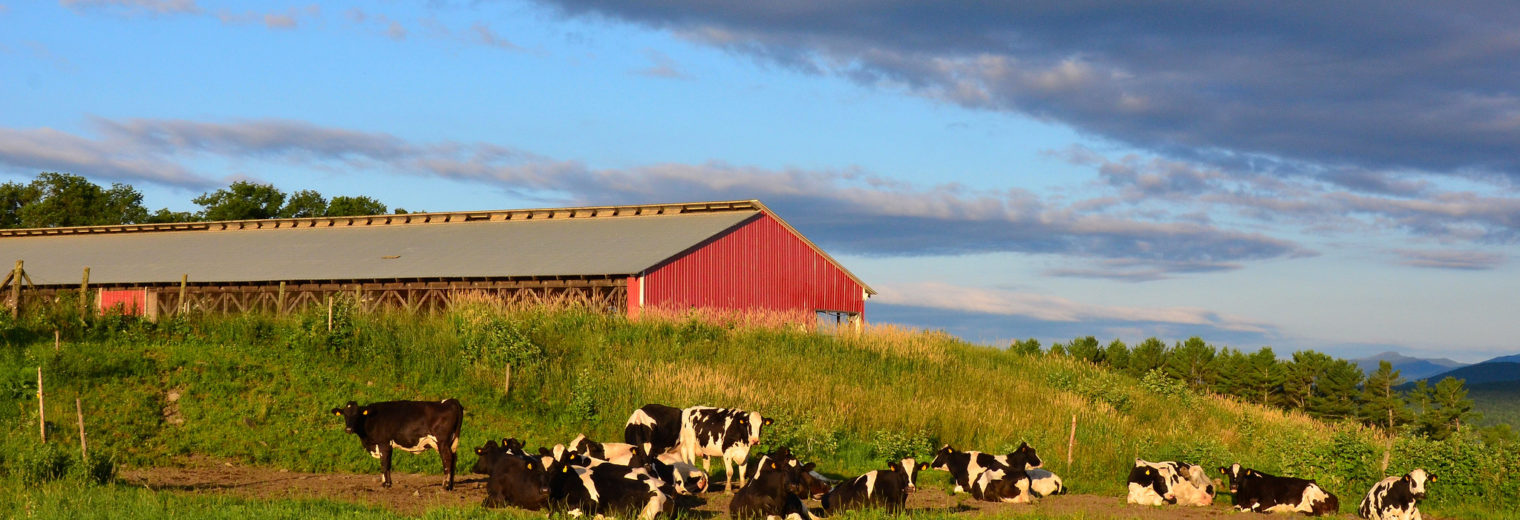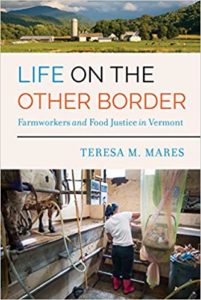In her timely new book, Teresa M. Mares explores the intersections of structural vulnerability and food insecurity experienced by migrant farmworkers in the northeastern borderlands of the United States. Through ethnographic portraits of Latinx farmworkers who labor in Vermont’s dairy industry, Mares powerfully illuminates the complex and resilient ways workers sustain themselves and their families while also serving as the backbone of the state’s agricultural economy. In doing so, Life on the Other Border exposes how broader movements for food justice and labor rights play out in the agricultural sector, and powerfully points to the misaligned agriculture and immigration policies impacting our food system today.
Life on the Other Border: Farmworkers and Food Justice in Vermont
Praise for Life on the Other Border
“Life on the Other Border is at once a critical analysis of the inequities, fear, and invisibility experienced by dairy farmworkers in the picturesque landscape of Vermont and a compelling tribute to them. The individuals and families Teresa M. Mares introduces in this book inspire us toward a more truly just and equal society as they care for one another, advocate for fair treatment and policy, and provide us with the food that nourishes us.”
––Seth M. Holmes, author of Fresh Fruit, Broken Bodies
“Mares reveals the multiple borders that Vermont immigrants contend with, applying border theory well beyond the familiar US–Mexico border. Life on the Other Border will be a revelation to many readers who think that border surveillance primarily affects the US–Mexico borderlands or who associate Vermont with a bucolic landscape full of family farmers and happy cows. Ultimately, she shows how Latinx immigrants have suffered for the dairy industry and why, against all odds, they have become the new leaders of farm worker justice in the United States.”
––Matt Garcia, author of From the Jaws of Victory: The Triumph and Tragedy of Cesar Chavez and the Farm Worker Movement
“This book breaks new ground by examining the intersections of the global food system, migration, gender, and food practices of resistance and resilience among Mexican and Central American farmworkers in Vermont. Most are undocumented workers and have to contend with their proximity to the Canadian border and the dangers of being arrested or even deported. This is a timely and highly significant ethnography.”
––Ellen Oxfeld, author of Bitter and Sweet: Food, Meaning, and Modernity in Rural China
About the Author
 Teresa Mares is an Associate Professor of Anthropology at the University of Vermont. Dr. Mares’ research focuses on the intersection of food and migration studies, and she is particularly interested in the ways that the diets and foodways of Latino/a immigrants change as a result of migration. She is committed to applied, community-based ethnographic methodologies. Other recent publications include “Eating Far From Home: Latino/a Workers and Food Access in Rural Vermont” co-written with Naomi Wolcott-MacCausland and Jessie Mazar, forthcoming in Food Across Borders: Production, Consumption, and Boundary Crossing in North America; and “Another Time of Hunger” in the edited volume Women Redefining the Experience of Food Insecurity.
Teresa Mares is an Associate Professor of Anthropology at the University of Vermont. Dr. Mares’ research focuses on the intersection of food and migration studies, and she is particularly interested in the ways that the diets and foodways of Latino/a immigrants change as a result of migration. She is committed to applied, community-based ethnographic methodologies. Other recent publications include “Eating Far From Home: Latino/a Workers and Food Access in Rural Vermont” co-written with Naomi Wolcott-MacCausland and Jessie Mazar, forthcoming in Food Across Borders: Production, Consumption, and Boundary Crossing in North America; and “Another Time of Hunger” in the edited volume Women Redefining the Experience of Food Insecurity.
Header image by Larry Lamsa / Flickr




